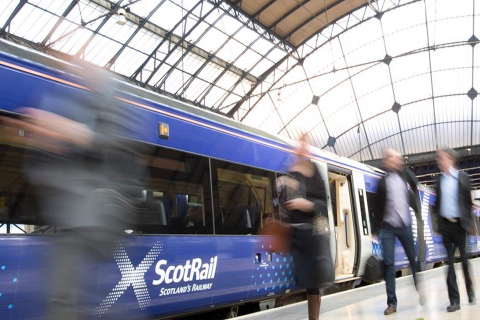Germany’s 9-euro ticket did not take (enough) cars off the road

Germany’s much-lauded 9-euro ticket, which enables people to make unlimited use of regional public transport, has mostly resulted in additional journeys. Introduced due to rising costs of energy and living, preliminary findings show that it has not resulted in people leaving their car at home, as was hoped as an additional benefit.
Want to read more?
You have read all of your free premium articles for this month. Please become a subscriber to keep reading.
Subscribe now!
Take advantage of our exclusive offer to get full access to all premium content.





Quality matters!
(Any one planning a trip, knows, if quality matters, then price is irrelevant, etc.)
For majority among ware owners (now with “On Demand” as the strategy) the road trucks is single available alternative, etc., etc.
Even worse, for IM:s low price, has turned high costs, as now infrastructure, is calling for frequent repairing and accordingly at clients added risks.
For high capacity – for utilisation of vast existing railway infrastructure, for high quality – a shift is needed!
Commutters want easy door-to-door transport solutions. That means a tight and fast network allowing travel with few shifts, free wifi and sufficient sitting places for working is needed. Secure sufficient bicyclespace for easy connection home-bus/tram/trainstop-workingplace.
The 9-EURO ticket is great for holiday and for people, who else pays a fortune commuting.
Cheaper public transport could get more young people to buy a car later and get children and youth to get used to public transport.
On reductions of road traffic at 3%. Everything counts. As modal split between private car and public transport is around 80:20 a 3% reduction in car traffic would mean a 12% increase in public transport assuming same travel needs and single car occupancy. If more people are in the same car and they all turn to public transport it would mean even more seats occupied in the public transport.
There is no quick fix. You have to match the car on ease of use and frequency of departures.
I believe many trips with the flat rate ticket were made on weekends. I am not sure if there is a lot of car traffic counting on weekends.